
Volume VI/Issue 9/December 2021


From The Editorial Desk
Majority Says Country On The Wrong Course
In an October NBC poll 71 percent of Americans surveyed said the country is headed wrong. Here is a summary of the details.
Seventy-one percent of Americans—and even half of Democrats—say the country is headed in the wrong direction. A large majority of Republicans (93 percent) and independents (70 percent) say the country is headed in the wrong direction,...but most alarming is that number is close to half of Democrats (48 percent) now too.
“When you see a wrong track of 71 percent, it is a flashing red light,” NBC’s Republican pollster Bill McInturff said. “These folks are telling us that this is not going well.” As I look at the findings of that survey done by the NBC Network, I have drawn a few conclusions.
First, the poll is both good news and bad news. It is bad news that the country is in such a mess, but it is good news that a huge majority of people see it and recognize it.
Even though it is good news that a lot of people are finally waking up, it is bad news that so many of them are seemingly clueless about what it takes to fix the problem.
For some insight, let’s turn to Ephesians, chapter 5.
Let no man deceive you with vain words. For because of these things cometh the anger of God upon the children of unbelief. Be ye not therefore partakers with them. For you were heretofore darkness, but now light in the Lord. Walk then as children of the light. And have no fellowship with the unfruitful works of darkness, but rather reprove them. Wherefore he saith, Awake thou that sleepest, and arise from the dead, and Christ shall give thee light. And have no fellowship with the unfruitful works of darkness, but rather reprove them. Wherefore he saith: Rise thou that sleepest, and arise from the dead: and Christ shall enlighten thee. —Vss. 6–8, 11, 14.
When a people, anybody anywhere, turn their backs on God, the darkness of evil will gather quickly and overwhelm them. Inevitably they will fumble around in the darkness trying to find their way. They may wish for light and they may look for light; but so many, even among this 71 percent, are looking in the wrong places.
Verse 14 tells us that Christ shall enlighten thee.We need that light, His light, “the light of the world” (John 8:12), in government, in politics, in education, at the networks, in entertainment, in business as well as in our families and our parishes.
Without the light the Lord provides, nothing works right. You cannot have honest government. You cannot maintain freedom. You cannot have clean politics. You cannot have quality education. You can’t keep the economy on track. You can’t have decent entertainment. None of the above. It is impossible when the Lord is pushed aside.
Without the light Christ gives, the darkness of evil will proliferate and prevail.
So, let’s do a reality check. I’m very glad that people are getting the picture. It is true that most countries are on a collision course with catastrophe. That is more than obvious these days.
Now is the time for the people of God to stand up and speak up. We must sound the alarm loudly and clearly.
Let’s make sure the whole world knows:
“Blessed is the nation whose God is the LORD; and the people whom he hath chosen for his own inheritance.”—Ps. 33:12.
“No, I say to you: but unless you shall do penance, you shall all likewise perish.”—Luke 13:3.
“For God so loved the world, as to give his only begotten Son; that whosoever believeth in him, may not perish, but may have life everlasting. ”—John 3:16.
“Neither is there salvation in any other: for there is none other name under heaven given among men,
whereby we must be saved.”—Acts 4:12.
“Then spake Jesus again unto them, saying, I am the light of the world: he that followeth me shall not walk in darkness, but shall have the light of life.”—John 8:12
The one sure remedy in dealing with the darkness of this world is to let the light of Christ shine brightly. From the heights of every mountaintop and deep in every valley, the light needs to shine boldly and clearly; it needs to be forever burning brightly.


Deo Gratias Advent 2021
Recently a priest friend quoted from Ephesians 5. It would be a good idea to read the whole chapter before continuing. http://www.drbo.org/chapter/56005.htm Let us consider verses 3 and 4: "But fornication, and all uncleanness, or covetousness, let it not so much as be named among you, as becometh saints: or obscenity, or foolish talking, or scurrility, which is to no purpose; but rather giving of thanks." Notice Saint Paul is contrasting these various sins with the giving of thanks.
When battling sin in our lives, we often focus on the sin itself, which weakens us. We need to change our focus. Focusing on the opposite virtue may be helpful, but we are still focusing on our weak spot. True abstinence will help us overcome gluttony, but while abstaining we are still focusing on food and the fact we should not have it.
Let us return to Ephesians (5:18-20): "And be not drunk with wine, wherein is luxury; but be ye filled with the holy Spirit, speaking to yourselves in psalms, and hymns, and spiritual canticles, singing and making melody in your hearts to the Lord; giving thanks always for all things, in the name of our Lord Jesus Christ, to God and the Father:"
There is one thing to consider in most sins. They all take some time, except sins of omission, when we misuse our time. Psalms, hymns and spiritual canticles also all take time. At the same time, they take our mind away from other things into something good for our soul. In a Pope Speaks from years ago we read about not needing a distraction. https://www.vaticaninexile.com/the_pope_speaks_november_2017.php However, we need this distraction to keep us from even thinking about sin, because we are too busy. https://www.vaticaninexile.com/our_song_of_praise_can_bring_deliverance.php
We have gotten off of course, so let us return to thanking God, since Deo gratias means thanks be to God. And so what does it mean to thank God? Let us begin with counting our blessings and they are many. We have a roof over our heads and food on the table. We have the grace of God.
Thanking God grounds us. Recently Pope Michael was in a car accident. As soon as things stopped, he was taking care of business, informing the police, arranging a tow, etc. When all was accomplished, he stopped to thank God. You might ask why should we thank God for a car wreck? God sent that accident for a reason. In fact one of the Saints observes that we earn much more grace by thanking God for tribulation than we do when we get what we want.
Living in the spirit of thankfulness to God grounds us, so that we are ready when a tribulation comes to handle it as we should. In fact, such a spirit will reduce some of our falls into sin. Instead of a four letter word coming from our mouth, when we stub our toe, thanks be to God will come out instead.
We recommend you follow up by considering some older articles on this subject of thanking God.
https://www.vaticaninexile.com/an_attitude_of_gratitude.php An Attitude of Gratitude
https://www.vaticaninexile.com/the_difference_a_thankful_heart_makes.php The Difference A Thankful Heart Makes
Let us thank God that He has shone us a way to walk away from our sins.


From Skeptic to Mystic
Two years after, We transferred to our province and i was separated from my Baptist friends. Listening to a radio program became my happiness especially Catholic apologetics. That program led me to love and defend the Catholic religion until i thought of entering the Seminary and became a priest later. This reflects the maxim a thousand difficulties does not constitute a doubt.
John the Baptist had difficulties also with the Lord Jesus Christ but that doesn't mean he doubted the Lord. Hence, he asked his disciples to come to Jesus and asked Him whether he is the Messiah or should they wait for another one since that moment John was imprisoned. Jesus replied indirectly. " Tell John, the blind are seeing, the crippled are walking, the dead are raised to life and the good news are preached to the poor. " That confirmed to John the Baptist that Jesus Christ indeed is the Messiah, a Messiah that looks for sinners and not punishing Judge.
The best way to prepare for Christmas is to clear our minds. Do not hesitate to ask questions, difficult ones. He who seeks, finds. He who knocks the door, opens. He who asks, receives. He who seek God, God finds him. In the latter part of the gospel from John, Thomas was absent when the risen Christ appeared. Hence when the ten disciples told Thomas that they have seen the risen Lord, Thomas said, " if i placed my finger into the hands of Jesus and put my hand into his side, only then shall I believe. " The following day Jesus appeared he invited Thomas to touch Him and from thereon, Thomas made a 100% perfect answer: " My Lord and my God."
From being a skeptic, Thomas became a mystic. A thousand difficulties doesn't constitute a doubt.
This Advent season, we are invited to pray and reflect to our Catholic faith. Do not be afraid to ask questions. Asking doesn't mean we doubt our faith rather its other way around. Let us pray that the Catholic faithful may acknowledge Peter the Apostle in Pope Michael and return to Catholic faith.

What's in a Name?
If you are a person, names do make a difference, especially if you have gone through life with a name you didn't like. In fact, a psychologist did a study of the names of 15,000 juvenile delinquents and found that those with odd or embarrassing names were in trouble four times as much as the others. Names can make a difference.
In biblical times, names actually meant something. Often a child would be named in honor of an event that took place at the time of his or her birth, or for a unique physical characteristic. Adam's name meant "earth" because he was taken from the dust of the earth. Esau's name meant "hairy," as in a hairy person, because he was hairy. Esau's twin brother Jacob was born hanging onto his brother's heel. His family named him Jacob, which means "heel-catcher."
I bring this up because I want to talk about a new name that was given to Mary in the gospel reading for today.
Hail Mary, full of grace.
The words are beautiful, angelic, and rich in meaning. They are also a centuries-long fault line between Protestants and Catholics. Everything, it seems, hangs upon what is meant by full of grace, or whether full of grace is even the correct translation of Luke 1:28. In Latin, the phrase becomes two words: plena gratia. In the original Greek, it’s just one, the phonetically unwieldy but potent in meaning verb, kecharitōmenē.
The case for the Catholic reading of this is not only far more compelling than those critics outside the Catholic Church will let on, but also far stronger than many Catholics today probably realize.
The theological debate begins with a textual question. What exactly does Luke 1:28 say? Is he talking about grace, that most potent of theological words? Or is Mary simply ‘favored’ by God, as so many translations read?
People will seize upon the fact that full of grace is taken from the Latin plena gratia, not directly from the Greek text. Full of grace, they point out, appears in the Greek in two other verses, not this one.
For example, The non catholic website, Carm.org, gives two scriptures and there own thoughts and interpretations of them. The argument is presented as a rebuttal of the Catholic position and it shows the stereotypes about Catholics not knowing their Bibles:
"And the Word became flesh, and dwelt among us, and we beheld His glory, glory as of the only-begotten from the Father, full of grace and truth," (John 1:14).
"And Stephen, full of grace and power, was performing great wonders and signs among the people," (Acts 6:8).
It is true that both Jesus and Stephen are said to be “full of grace” in the English translations. However, the Greek phrase that is used for Jesus and Stephen is pleres charitos, whereas the Greek word used with reference to Mary is kecharitomene.
Being a simple adjective, pleres charitos has a different connotation than kecharitomene in that it suggests a completion of grace in the present moment. In the case of Stephen, God filled him with grace at the moment to prepare him for martyrdom. For Jesus, John is emphasizing that Jesus was full of grace at the moment of the Incarnation. He tells us that Jesus remains full of grace later in verse sixteen: “And from his fullness have we all received, grace upon grace.”
Nevertheless, where does the phrase "full of grace" come from regarding Mary?
This raises the question as to how to translate the word at issue (kecharitōmenē) in the first place. The word is a form of the verb khä-rē-to'-ō . This word is where we get our word charisma, which refers to someone’s gift as a leader. In ancient Greek, the companion noun was khar-ee-to'-o , the stock New Testament word for grace. Although it’s sometimes translated as favor, it overwhelmingly is rendered in the King James Bible as grace. (Out of 156 instances, 132 read as grace, while just 7 are favor. Most of the rest appear to be translated as a form of thanks.)
The Catholic Church is right to suspect that khä-rē-to'-ō then has something to do with grace as we understand it. And that’s exactly how it’s defined. Vine’s Expository Dictionary of New Testament Words defines the verb this way: “the verb primarily signified ‘to make graceful or gracious,’ … ‘to cause to find favor.’” Thayer’s Greek Lexicon puts it this way: “to pursue with grace, to compass with favor.” Another dictionary drops “favor” altogether and gives us this definition: “itmeans endowed with grace.”
However, these definitions do leave it open-ended as to whether grace or favor is the way to go. Although favor and grace have related meanings they remain distinct. In a theological context, grace is a free and unmerited gift of God. Grace is something given to someone. Usually we think of a favor as something done for someone else. So which way do we go in Luke 1? Unlike the noun, the verb is used only one other time in the New Testament, so we don’t have too many verses to guide us on how it’s used. For the record, the other instance is Ephesians 1:6, which the most common translation is the word grace. “Unto the praise of the glory of his grace, in which he hath graced us in his beloved son.”).
Fortunately, the text does not leave us hanging. After Mary’s initial apprehension, the angel tells her, “Fear not, Mary, for thou hast found grace with God. ” (Luke 1:30). Grace here is the noun charis-khar'-ece , which we’ve already established usually means grace and only rarelyfavor (in the New Testament at least). If Luke 1:28 was unclear, Luke 1:30 is our clarification. This should settle it. We’re talking about grace.
Now our question becomes: How much grace did Mary receive and when? The dogma of the Immaculate Conception holds that Mary was fully graced from the moment of conception, that through the grace of God, Mary’s life was one without sin. Is this supported by Luke 1:28?
For the answer, we now turn from the dictionary to the grammar book. As mentioned above kecharitōmenē is a form of the verb charitoō-khä-rē-to'-ō. Our focus will be on the tense. A verb tense at the most basic level refers to the time of action. “I wrote an article” is an example of the past tense. “I am writing” is present and “I will write” is future. Now in ancient Greek there were more than just these three simple tenses. There were other tenses that tell us something about the action done and its enduring impact.
Kecharitōmenē is the “perfect” tense of charitoō-khä-rē-to'-ō. According to Herbert Weir Smyth in his book A Greek Grammar for Colleges defines the perfect tense this way: “The perfect denotes a completed action the effects of which still continue in the present.” So Mary received grace in some complete way and remains completed in that grace. We’re coming awfully close to the Catholic dogma.
Or are we reading too much into this? Here’s the conclusion two scholars, Blass and DeBrunner draw in the book Greek Grammar of the New Testament: “It is permissible, on Greek grammatical and linguistic grounds, to paraphrase kecharitōmenē as completely, perfectly, enduringly endowed with grace”
To say that Mary was “completely, perfectly, enduringly endowed with grace” is a restatement of the dogma of the Immaculate Conception. If anything, “full of grace,” seems to understate what the Greek text is saying. But “filled completely, perfectly, and enduringly” is a mouthful, so it’s easy to see why the Vulgate went with the more poetic approximation “full of grace.”
By turns the dictionary, concordance, and grammar argue for the Catholic reading of Luke 1:28.
Now, three facts from the narrative seal the case. First, as St. Thomas Aquinas notes in his commentary on the Hail Mary, the angel’s reverent salutation of Mary is a complete reversal of roles from the Old Testament, in which men revered angels. Such reverence was due to angels because angels have a spiritual and incorruptible nature, are more familiar with God, and “partake most fully of the divine light.” In revering Mary, then, then Angel Gabriel is showing that she surpasses the angels in these three aspects. Only someone “full of grace” could merit such extraordinary reverence.
Second, in the Greek text, as Aquinas points out, Mary’s name is missing from Luke 1:28. The text literally reads as “Hail, full of grace.” Mary has become so “full of grace” that it has consumed her completely—it has become more who she is even than even her very name.
This omission makes the most sense if we translate the verb as grace and not as favor. A favor does not involve the interior man (or woman). It chiefly is concerned with their exterior circumstances. I can do a favor for you without changing who you are (for example, buy you a car, or get you a job). God’s grace changes who we are. Grace implies a spiritual state or interior condition (hence the phrase “state of grace”). One can imagine, then, that someone could be in such an intensive state of grace that it defines their whole personality.
Third, Mary’s reaction to the angel’s words is a giant clue as to their significance. There was a lot to take in. Mary is “blessed among women.” Her son will be the “Son of the Most High” and a king after David. And she will do this while remaining a virgin. Instead, she will conceive by the “power of the most High.” Terror-inducing words for any mortal ears, not to mention an unmarried teenage virgin. Readers may recall that Mary was “troubled” by the words of the angel.
But go back and read at what point she was “troubled.” Mary’s apprehension comes before the angel foretells the birth of Christ and His kingdom. It comes after just this one line: Hail, full of grace, the Lord is with thee: blessed art thou among women. One wonders, were this just an act of divine “favor” what would be so troubling to Mary? Favors are always welcomed, never feared. Divine grace, on the other hand, is powerful, awesome, even fearsome.
The doctrine of the Immaculate Conception can indeed be “troubling.” Our best response, however, is to follow the example of Mary and accept God’s words in faith.

Lawyers in Court Challenging New California Law Criminalizing Free Speech
Life Legal attorneys appeared remotely in federal court in San Jose...to argue that a new California law severely restricting speech on public sidewalks is unconstitutional.
The law, SB 742, prohibits, among other things, “harassing,” which is redefined as “knowingly approaching, without consent, within 30 feet of another person or occupied vehicle for the purpose of passing a leaflet or handbill to, displaying a sign to, or engaging in oral protest, education or counseling with, that other person in a public way or on a sidewalk area.”...
The law is unprecedented in its breadth, criminalizing activities that are explicitly protected by the Constitution, such as handing out leaflets, carrying signs and providing education on public sidewalks.
The Supreme Court has struck down similar expansive restrictions on First Amendment speech, holding that “Precision of regulation must be the touchstone in an area so closely touching our most precious freedoms” (NAACP v. Button, 1963). SB 742 is a blunt sledgehammer that crushes precious First Amendment rights for no good reason.
Portland First to Offer Abortion Bereavement Leave for Employees
An amendment to Portland’s bereavement leave policy...has made it the first local government in the United States to give paid time off to public employees after an abortion. One pro-life group is calling it an unwitting acknowledgment of the loss of life. The new policy allows public employees to take up to three days of bereavement leave for an abortion or a miscarriage, stillbirth or any other type of pregnancy loss, “irrespective of whether deemed medically necessary,” Oregon Public Broadcasting reported. The city council approved the changes unanimously.
Delta Airlines CEO Takes Defiant Stand Against Vaccine Mandates
Delta Airlines CEO Ed Bastian took a stand against COVID-19 vaccine mandates...saying his decision not to impose a mandate on his employees is the reason most of Delta’s employees are vaccinated.
Speaking on Fox Business, Bastian said Delta has accomplished a vaccination rate of more than 90 percent without “the divisiveness of a mandate.”...
“We’re proving that you can work collaboratively with your people, trusting your people to make the right decisions, respecting their decisions and not forcing them over the loss of their jobs,” he added....
Southwest Airlines CEO Gary Kelly condemned Biden’s vaccine mandate...saying he disagrees with such policies, but said he is enforcing one on Southwest employees only because of Biden’s mandate.
Seventeen Missionaries Kidnapped by Armed Gang in Haiti
An armed gang in Haiti abducted 17 missionaries and their family members, including children, as they were leaving an orphanage.
The Missionaries were abducted [October 16] from their vehicle as they were traveling to Titanyen after visiting an orphanage in the Croix des Bouquets area, said CNN....
The Biden administration declined the request of Haiti’s Interim Prime Minister Claude Joseph for troops, saying the U.S. would only send security officials to assess the situation, the Wall Street Journal reported at the time....
Authorities in Haiti reported 1,380 killings in 2020....
At least 628 kidnappings have been reported in Haiti since January, of which 29 are foreigners, CNN said....
Police Name Suspect in David Amess Murder as 25-Year-Old Man on Terror Watch List
Police have identified the suspect in the brutal murder of British MP Sir David Amess as a 25-year-old “self-radicalized” man, Ali Harbi Ali, the son of a former prime ministerial adviser in Somalia.
...The U.K. Times reported...that officers believe the suspect was a lone operative and known to counterterrorism police.
Anti-terrorist police from Scotland Yard had visited the suspect, who was likely radicalized online during lockdown, and referred him to...the government’s deradicalization program, the newspaper said....
The program is for those who have displayed potentially disturbing behavior, such as writing inflammatory posts on social media....
After stabbing Amess 17 times, the suspect sat down next to his body, waiting for the police to arrive, the Telegraph reported....
Amess, who was married with five children and was known for his socially conservative viewpoints and pro-life stance against abortion, attended a public meeting for his “constituency surgery” in a Church in Belfair when the attack occurred.
Seven Pastors Arrested in India on False Charges of Forced Conversions
Authorities in the northern Indian state of Uttar Pradesh arrested seven pastors at a prayer meeting under the state’s “anti-conversion” law, which Christians have accused Hindu nationalists of using as a tool to persecute them.
...UCA News reported...that the pastors have been charged with “illegal assembly.”
The U.S.-based persecution watchdog International Christian Concern said that the Christians remained in jail.
Uttar Pradesh is one of the several Indian states that have “anti-conversion” laws, which presume that Christians “force” or give financial benefits to Hindus to convert them to Christianity.
While some of these laws have been in place for decades in some states, no Christian has been convicted of “forcibly” converting anyone to Christianity. These laws, however, allow Hindu nationalist groups to make false charges against Christians and launch attacks on them under the pretext of the alleged forced conversion.
San Francisco Closes Burger Place Over Vaccine Requirement
In-N-Out Burger blasted the city of San Francisco’s proof of COVID-19 vaccination requirements after the San Francisco Department of Health closed one of the popular California burger joint’s locations for serving customers who were not carrying the proper papers.
“On Thursday, October 14, the San Francisco Department of Public Health closed our restaurant at 333 Jefferson Street because In-N-Out Burger associates (employees) were not preventing the entry of customers who were not carrying proper vaccination documentation,” In-N-Out Burger’s chief legal and business officer, Arnie Wensinger, said....
“Our store properly and clearly posted signage to communicate local vaccination requirements,” Wensinger said. “After closing our restaurant, local regulators informed us that our restaurant associates must actively intervene by demanding proof of vaccination and photo identification from every customer, then act as enforcement personnel by barring entry for any customer without the proper documentation.”
“We refuse to become the vaccination police for any government,” Wensinger declared, slamming the San Francisco Department of Health’s requirements as “unreasonable, invasive and unsafe”.
Military, Federal Employees and Civilian Contractors Sue President Biden
Liberty Counsel has filed a class action lawsuit along with a motion for a temporary restraining order and injunction against Joseph R. Biden, U.S. Secretary of the Department of Defense Lloyd Austin and U.S. Secretary of the Department of Homeland Security Alejandro Mayorkas on behalf of members from all five branches of the military—Army, Navy, Air Force, Marines and Coast Guard—federal employees and federal civilian contractors, who have been unlawfully mandated to get the COVID shots or face dishonorable discharge from the military or termination from employment.
Scattered Activism With a Single Focus
A cultural affairs writer says homosexual and transgender activists continue to extend the celebration of their deviant lifestyle throughout the year as a way of indoctrinating students.
Laurie Higgins of the Illinois Family Institute says her state is among those that mandate the teaching of LGBTQ history and achievements in public schools during the month of October, which is LGBTQ+ History Month.
“Pride Month, which, that’s in June, and then LGBTQ History Month, which is in October, and then you have Day of Silence, which is in April,” Higgins lists. “Now we have over two months of time during which we are supposed to celebrate sexual deviance.”
She says all these events, under the umbrella of the Gay, Lesbian and Straight Education Network, or GLESN, focus on indoctrinating students.
“They’re using...all these events to normalize homosexuality and to silence and demonize people who feel differently, who believe differently,” the cultural issues writer asserts.
She also points out that the first week of November is designated as Solidarity Week, which focuses on youth involvement in LGBTQ activism.
Missouri County Agrees to Pay $150,000 to Settle Megachurch’s Lawsuit Over COVID-19 Restrictions
A megachurch in Missouri has been awarded a settlement of nearly $150,000 following a dispute with the local government over coronavirus restrictions.
Jackson County, Missouri, home to the state’s largest city of Kansas City, agreed to pay $146,750 to A Church in Lee’s Summit as part of a settlement in a lawsuit filed by the church against the county more than a year ago. The church raised concerns that the county’s coronavirus restrictions treated places of worship more harshly than secular entities....
Secular businesses were allowed to reopen at 10 percent to 20 percent capacity based on a building’s size. By contrast, the county classified churches as “large gatherings and social events” [which] could not have more than 10 people in their venue, regardless of its size.

The Funny Pharmacy
A joyful mind maketh age flourishing: a sorrowful spirit drieth up the bones. - Proverbs 17:22
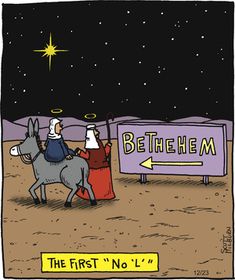




Frequently Asked Questions

What Has Pope Michael Accomplished?
In 1983, David Bawden came to the conclusion that the only solution to the problems in the Church had to come from the top, the Pope. He was inspired in part by the rector of Armada in 1978, Donald Sanborn, who is now a Thuc bishop. Sanborn constantly reminded the seminarians there that the fish rots from the head. This is also true of the institution that stole the name of Catholic, the Conciliar Church founded through Vatican 2 and its spirit. It rotted from its head Paul VI.
Traditional minded Catholics in the 1970's were all sede vacantists in their heart, although the term was not in use yet. How could a Pope give us the heresies coming from the pulpits during and after Vatican II. And so we had no Pope. But, this is not a history of Traditionalism. Father Joachin Seanz-Arriaga was the first that we know of, who promoted the necessity of electing a Pope. He first approached the conservative Cardinals, hoping they would come together and solve the problem. They apparently refused to do so from the reports circulating in the early 1970's. He then took the next logical step, approach the Bishops. This is why he and two other priests traveled from Mexico to Stafford, Texas where Archbishop Lefebvre came for Confirmations in May of 1976. These priests talked to some of the lay people gathered there and soon the place was buzzing with talk of ending the crisis by electing a Pope. However, Archbishop Lefebvre apparently refused.
The main thing accomplished on July 16, 1990 was preserving the Apostolic Succession. When the Papacy is vacant, the Apostolic Succession is impaired. The ordinary way of perpetuating Apostolicity is for the Pope to either appoint a Bishop to a diocese, whose Bishop has died, or for the diocese to elect a new Bishop and submit him for approval to the Pope as their Bishop. Without a Pope, when an episcopal see becomes vacant, there is no way to end this vacancy. For instance, when Pope Pius XII died and the Archbishop of Detroit died, the Archdiocese no longer had a Bishop nor any way to find and appoint one.
Mark Pivarunas, head of the CMRI, wrote an article on consecrating bishops, during an interregnum. He lists eight Bishops elected by their diocese, who could not be approved by a Pope, because there was no Pope during the second longest interregnum in history between Popes Clement IV and Gregory X. (1,012 days or a little over 2¾ years) Pope Gregory X ratified their action, when he was elected. However, the Traditionalist bishops have not been elected to take charge of a diocesan see. Anthony Cekada wrote an article claiming that the consecration of bishops by the Traditionalists does not incur the excommunication of Pope Pius XII for consecrating Bishops without a Papal Mandate. His reasoning is that the excommunication is only incurred, if a man is consecrated as Bishop of a diocese without the Papal Mandate. He states that the traditionalist bishops are not consecrated as the bishops of a diocese. His argument is persuasive enough to form a probable opinion that such men are not excommunicated for their action.
We need to go a step forward. Since traditionalist bishops are not consecrated as the head of a diocese, they do not possess one of the requirements for Apostolicity, canonical mission and authority. To be in the Apostolic Succession a man must possess three things, Apostolic Doctrine, Apostolic Mission and the Order of Bishop. Actually the latter is not a strict requirement, because the moment a man takes canonical possession of a diocese he becomes Bishop of that diocese, even if has not yet been consecrated. (The Conciliar Church has changed this law, requiring a man to possess the Order of Bishop before he possesses the Office of Bishop.) True, Canon Law requires a man appointed as Bishop of a Diocese to obtain the Order of Bishop within several months of his appointment, if at all possible.
On the day of the papal election on July 16, 1990, one of the electors observed that all we have done is preserve the Apostolic Succession.
In his Adversus Haereses (Against the Heresies), Saint Irenaeus tells us to look to the Successors of the Apostles for guidance in matters of Faith. Since it would be tedious to track the succession of all the Diocesan Sees over the past century (He died in 130), we need only track one succession, that of the Diocese of Rome and attach ourselves to that Faith. Those who propose Episcopal Consecration as enrolling a man into the Apostolic Succession err, because the Bishop of Rome is not consecrated to the order of bishop by his predecessor. Rather the Bishop of Rome is elected in some manner as provided over the centuries, and some elections have been irregular, that is outside of the letter of the law. And yet few of these elections were ever questioned in any way whatsoever. The succession is to the Office of Bishop, not to the order of bishop that enrolls a man in the Apostolic Succession. And there are two aspects of this succession. The first is that of the Bishop of Rome, the Successor of Saint Peter, the Pope. The second is the succession of the Apostolic College as a whole, the current Diocesan Bishops being as a whole successor of the Apostles, who established the first dioceses or as they are called in Scripture, churches.
The Roman Catechism, also called the Catechism of the Council of Trent, when commenting on the Church, states: "It is the unanimous teaching of the Fathers that this visible head is necessary to establish and preserve unity in the Church." When the Fathers of the Church are in unanimous agreement, the Church considers their opinion to be infallibly true. Sedevacantism implicitly denies this necessity, because they are operating without any real effort to end the vacancy. Rather they are defending the possibility of an extended interregnum, and then operating in an emergency instead of ending the emergency.
The Church as a perfect society, which possesses all it needs to maintain itself, always has a way to supply Herself with a Pope, no matter how large the crisis may be. Vatican Council (DZ 1825) declares: "If anyone then says that it is not from the institution of Christ the Lord Himself, or by divine right that the blessed Peter has perpetual successors in the primacy over the universal Church, or that the Roman Pontiff is not the successor of the blessed Peter in the same primacy, let him be anathema." The church is in one of three modes. The Church has a living Pope or the Church has just lost the Pope and is mourning, or the Church is electing a successor. Only twice in history has the Church been in a crisis mode. The first is when someone set the place of election on fire, and the Cardinals disbanded before reassembling about two years later to elect a Pope. The second occurred, when the conclave in 1958 presented us with the second Antipope John XXIII in history. The election of a successor was not actually assembled until over thirty-one years later, although many worked to bring this to a conclusion far sooner. Father Moises Carmona went to his grave, desiring the election of a Pope. Bishop Peter Martin Ngo Dihn Thuc consecrated bishop to preserve the order of bishop, until an election could be assembled to confer the Office of Bishop of Rome on someone.
Second Council of Lyons, Canon 2: "Where a greater danger exists, there without doubt a fuller deliberation is necessary. How grave are the losses resulting from a prolonged vacancy, and how full of dangers it is to the Roman Church, is shown by prudent consideration of the past." When the Pope dies or resigns, part of the Church stops immediately. The Roman Curia shuts down all work with a very few exceptions. In fact, they are not allowed to even go into their office for any reason. As noted above, if a Diocesan See becomes vacant, the vacancy cannot be filled until after the next Pope is elected. Annulment cases halt, as does any other work, that requires a living Pope.
Canon Law (682) states: "The laity has the right to receive from the clergy the spiritual goods and especially the necessary means of salvation, according to the rules of ecclesiastical discipline." Boniface VIII in 1302 issued the Bull, Unam Sanctam: "Furthermore, we declare, we proclaim, we define that it is absolutely necessary for salvation that every human creature be subject to the Roman Pontiff." Since it is necessary to be subject to the Pope it is a corollary that it is also necessary to have a living breathing Pope to be subject to. This is a necessary means of salvation, which places a burden on the clergy to provide, when the ordinary electors fail.
And therefore on July 16, 1990, the Apostolic Succession was preserved as only the election of a Pope can preserve Apostolicity of Mission and authority, since all authority flows from God the Father through Jesus Christ, and then through His Vicar. "Peace be to you. As the Father hath sent me, I also send you." (John 20:21)
I Believe in the Catholic Church: https://amzn.to/31isrTA
For answers to more frequently asked questions, click here: https://www.vaticaninexile.com/frequently_asked_questions.php
The Pope Speaks: December 2021
The Dollar Is Not Money

About a year and a half ago a lot of information about our current economy began coming to Us. We have studied this for over three and a half decades and have reached some simple conclusions about the world and Us economies; what they are and what is wrong with them. One of the articles proposed that modern currencies, such as the dollar, euro, yen, ruble, etc. are not money, but something else. After reading the article, We looked for a definition of money from the aspect of The Church, both Scripture and Tradition. We did not find much for an actual definition, so We ended up with Aristotle
Aristotle defined four marks of true money:
Durable- the medium of exchange must not weather, fall apart, or become unusable. It must be able to stand the test of time.
Portable- relative to its size, it must be easily movable and hold a large amount of universal value relative to its size.
Divisible- should be relatively easy to separate and put back together without ruining its basic characteristics.
Intrinsically Valuable- should be valuable in of itself, and its value should be totally independent of any other object. Essentially, the item must be rare.
Saint Thomas Aquinas (Summa II-II Q78 A1) does tell us that money is a commodity. He compares it to wheat and wine, which are both consumed when used. Money is also consumed, when used, because we exchange it for something else, whether for wheat, wine or to buy a house.
Modern currencies are portable and divisible, but they are not intrinsically valuable or durable. One author years ago observed that government is the only entity capable of taking something valuable, paper, and making it worthless by applying ink. Modern currency is certainly not durable. An average dollar bill lasts about six and a half years, which is not durable. As we go cashless, currency will be durable as long as there is electricity. Modern currency is certainly portable, since we can easily make transactions. It is also easily divisible.
If these currencies are not money, then what are they? We have chosen the term currency to identify them. They are being used in place of money at the moment, although they have no real value in any way, shape or form. They are backed by the full faith and credit of the issuing entity, whatever that means. People may complain about our faith in God, and yet they have equal or more faith in something that is intrinsically worthless. Once people lose faith in modern currencies, they will return to their true value, which is nothing. It has happened in the past in Germany prior to World War II. Inflation became insane. A book on this had a small chart showing the inflation rate. It had a caption that said that if we tracked the last year, this chart would be over 200 miles tall.
A very short history of how we were led away from something that fits the above definition of money to where we are today is in order. For millennia gold and silver were the main forms of money. Look up gold and silver in Sacred Scripture and you will find many references to it. Gold and silver have one drawback. In large transactions they are not easily portable. So replacements on paper were invented to facilitate their transportation. Also similar contracts were invented to reduce the risk of robbery for traders on long journeys. This occurred before the Protestant Revolt.
The word salary comes from the Latin word for salt, because one time salt was used for money. After word War II, cigarettes were used in Germany as money, because the Reich Mark had collapsed with the collapse of the Third Reich and it took time to rebuild the government and issue something to replace cigarettes.
More recently it was decided to issue currency as a replacement for physical gold and silver, such as dollars, pounds, etc. The pound, for instance, originally was one pound of silver. A hundred pound note is far easier to carry than a hundred pounds of silver. So for every pound of silver or gold you deposited you would receive a note worth that amount, which someone else could redeem from the place you deposited it. What those issuing these certificates realized is that usually there was not any demand for more than ten percent of what they had on deposit. And so they issued certificates that were not backed but anything but people's faith in them.
Father Fahey explains this: "Given the defective principles of money manipulation outlined in the last section, it is easy to see how financiers came to occupy their present dominant position in modern States. The bankers observed that about 90 per cent of their total stock of gold remained in their vaults, entirely undisturbed, and that only about 10 per cent of the precious metal was required for the normal transaction of business. The Banks then began to circulate far more promises to pay gold than they had gold to meet and to collect interest on the fictitious money." (Money Manipulation and Social Order, Fr. Dennis Fahey, page 19)
Today the pound has lost a lot of weight and is only worth about two thirds of an ounce of silver. The reason is simple and the the next steps. Once this currency is accepted in place of money by people, the underlying support, such as gold and silver is removed. All that is left is a piece of paper or an electronic entry in cyberspace backed by the full faith and credit of some central bank.
More recently a new form of money has been issued, which is backed by the full faith in the internet. These are called cyber-currencies. Some think they will rival and possibly replace government currencies in the future. Governments are also trying to get into the mix by issuing their own rivals. In the past two years We have received a great deal of information about what the future may hold.
We will not be offering a solution, which everyone will ignore, but attempting to offer moral guidance of what to do in an insane economy, which is based upon faith in those who are unfaithful.
The solution to the problems in the world are found in Sacred Scripture where Saint John the Baptist advises us: "Bring forth therefore fruit worthy of penance." The Douay Rheims footnote tells us: "Which word, according to the use of the scriptures and the holy fathers, does not only signify repentance and amendment of life, but also punishing past sins by fasting, and such like penitential exercises." The only way to fix our economy is to convert the world, because only God can repair things.
There is an old joke about baseball. Joe was sent out to left field and dropped ball after ball and couldn't make a play. The coach pulled Joe out and put John in left field. John proceeded to do the same thing in the next inning. When the coach asked John what was wrong, John said: "Joe messed up left field so that no one can play it." The government of the world have messed up economics so that no one can fix it, except God. Our fear is that a god will come along to be the man with the plan.
Let us pray and ask God's guidance through these troubling times.


Saint Mark the Ascetic
On The Spiritual Law

172. Wickedness is an intricate net; and if someone is careless when partially entangled, he gets completely enmeshed.
173. Do not desire to hear about the misfortunes of your enemies. For those who like listening to such things will themselves suffer what they wish for others.
174. Do not think that every affliction is a consequence of sin. For there are some who do God's will and yet are tested. Thus it is written that the ungodly and wicked shall be persecuted (cf. Ps. 37:28), but also that those who 'seek to live a holy life in Christ Jesus will suffer persecution' (2 Tim. 3:12).
175. At a time of affliction, expect a provocation to sensual pleasure; for because it relieves the affliction it is readily welcomed.
176. Some call men intelligent because they have the power of discernment on the sensible plane. But the really intelligent people are those who control their own desires.
177. Until you have eradicated evil, do not obey your heart; for it will seek more of what it already contains within itself.
178. Just as some snakes live in glens and others in houses, so there are some passions which take shape in our thoughts while others express themselves in action. It is possible, however, for them to change from one type to the other.
179. When you find that some thought is disturbing you deeply in yourself and is breaking the stillness of your intellect with passion, you may be sure that it was your intellect which, taking the initiative, first activated this thought and placed it in your heart.
180. No cloud is formed without a breath of wind; and no passion is born without a thought.
Saints from East and West
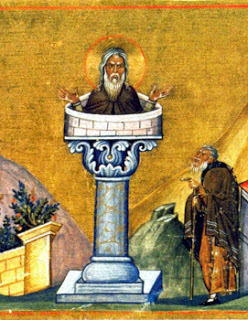
December 11 - Saint Daniel the Stylite.
The Monk Daniel the Stylite (Pillar-Dweller) was born in the village of Bythar, near the city of Samosata in Mesopotamia.
His mother Martha was childless for a long while and in her prayers gave a vow, that if she had a child, she would dedicate him to the Lord. Her prayers were heard, and Martha soon gave birth to a son, who until he was five years of age was without a name. The parents of the boy desired, that since he was born through the good-will of God, he should likewise receive from God his name. They took their son to a monastery located nearby and approached the hegumen. The hegumen gave orders to take down one of the Divine-service books, and at random having unrolled it, found in it the mention of the Prophet Daniel. Thus did the lad receive his name. The parents asked that the lad might remain at the monastery, but the hegumen would not accept him, since he was still but a small boy. At twelve years of age, saying nothing to anyone, the lad left home for the monastery.His parents were happy when they learned where their son was, and they went to the monastery. Seeing that he was still going about in his worldly clothes, they besought that the hegumen should attire him in the Angelic garb. And on that Sunday the hegumen fulfilled their request, but permitted them often to visit their son. The brethren of the monastery were astonished at the efforts of the monk.
One time on a visit to the monastery came Saint Simeon the Stylite, who foretold to the young monk that he too would undertake the feat of pillar-dwelling.
The Monk Daniel continued on with his ascetic life in seclusion. When in a vision the place of a new exploit was revealed to him, he withdrew into the Thracian wilderness together with two students, where they set up a pillar, upon which the Monk Daniel dwelt for 33 years. People thronged to the pillar, those who were misfortunate and those who were sick, and all received from the Monk Daniel help and healing. Byzantine emperors likewise besought the prayers of the holy ascetic. And from the numerous predictions of the monk, the most notable was about a strong conflagration in Constantinople. The Monk Daniel possessed also the gift of gracious words. He guided many onto the path of correcting their lives. The monk reposed in his eightieth year.

December 16 - Saint Eusebius of Vercelli.
Saint Eusebius was born in the isle of Sardinia, where his father is said to have died in chains for the faith. His mother, when left a widow, took him and a daughter, both in their infancy, to Rome, where Eusebius was brought up and ordained lector. He was called to Vercelli, in Piedmont, and served that church with such distinction that he was chosen to govern it by the clergy and people. He is the first bishop of Vercelli whose name we know. Saint Ambrose assures us that he was the first who in the West united the monastic discipline with the clerical, living himself with some of his clergy a common life in community. For this reason Saint Eusebius of Vercelli is specially venerated by the canons regular. He saw that the best and first means to labour effectually for the sanctification of his people was to form under his own eyes a clergy on whose virtue, piety and zeal he could depend. In this he succeeded so well that other churches demanded his disciples for their bishops, and a number of prelates came out of his school who were shining lamps in the Church of God. He was at the same time very careful personally to instruct his flock, and, moved by the force of the truth which he preached and persuaded by the sweetness and charity of his conduct, many sinners were encouraged to change their lives. But in 354 he was called to the public work of the Church at large, and for ten years following was a distinguished and persecuted confessor of the faith.
In that year Pope Liberius deputed Saint Eusebius, with Lucifer of Cagliari, to beg the Emperor Constantius to assemble a council to try and end the trouble between Catholics and Arians. Constantius agreed, and a council met at Milan in 355. Eusebius, seeing things would be carried by force through the power of the Arians, though the Catholic prelates were more numerous, refused to go to it till he was pressed by Constantius himself. When the bishops were called on to sign a condemnation of Saint Athanasius that had been drawn up, Eusebius refused, and instead laid the Nicene creed on the table and insisted on all signing that before the case of Saint Athanasius should be considered. Great tumult and confusion followed. Eventually the emperor sent for Saint Eusebius, Saint Dionysius of Milan and Lucifer of Cagliari, and pressed them to condemn Athanasius. They insisted upon his innocence and that he could not be condemned without being heard, and urged that secular force might not be used to influence ecclesiastical decisions. The emperor stormed and threatened to put them to death, but was content to banish them. The first place of exile of Saint Eusebius was Scythopolis (Beisan) in Palestine, where he was put in charge of the Arian bishop, Patrophilus.He was lodged at first with Saint Joseph of Palestine (the only orthodox household in the town), and was comforted by the visits of Saint Epiphanius and others, and by the arrival of the deputies of his church of Vercelli with money for his subsistence. But his patience was to be exercised by great trials. Count Joseph died, and the Arians insulted the bishop, dragged him through the streets half naked, and shut him up in a little room, where he was pestered for four days with all manner of annoyances to make him conform. They forbade his deacons and other fellow confessors to be admitted to see him, so he sent a letter to Bishop Patrophilus addressed, "Eusebius, the servant of God, with the other servants of God who suffer with him for the faith, to Patrophilus the jailer, and to his officers." After a short account of what he had suffered, he asked that his deacons might be allowed to come to him. Eusebius undertook a sort of "hunger-strike," and after he had remained four days without food the Arians sent him back to his lodging. Three weeks afterwards they came again, broke into the house, and dragged him away. They rifled his goods, plundered his provisions, and drove away his attendants. Saint Eusebius found means to write a letter to his flock, in which he mentions these particulars. Later he was removed from Scythopolis into Cappadocia, and some time afterwards into the Upper Thebaid in Egypt. We have a letter which he wrote from this place to Gregory, Bishop of Elvira, praising him for his constancy against those who had forsaken the faith of the Church. The undaunted confessor expresses a desire to end his life in suffering for the kingdom of God.
When Constantius died towards the end of the year 361, Julian gave leave to the banished prelates to return to their sees, and Saint Eusebius came to Alexandria to concert measures with Saint Athanasius for applying proper remedies to the evils of the Church. He took part in a council there, and then went on to Antioch to put into effect the wish of the council that Saint Meletius should there be recognized as bishop and the Eustathian schism healed. But he found it widened by Lucifer of Cagliari, who had blown on the coals afresh by ordaining Paulinus bishop for the Eustathians. Eusebius remonstrated with him for this rash act; but the hasty Lucifer resented this, and broke off communion with him and with all who, with the Council of Alexandria, received the ex-Arian bishops. This was the origin of the schism of Lucifer, who by pride lost the fruit of his former zeal and sufferings.
Unable to do any good at Antioch, Saint Eusebius travelled over the East and through Illyricum, confirming in the faith those who were wavering and bringing back many that were gone astray. In Italy Saint Hilary of Poitiers and Saint Eusebius met, and were employed together in opposing the arianizing Auxentius of Milan. Vercelli, on the return of its bishop after so long an absence, "laid aside her garments of mourning," as Saint Jerome puts it, but of the last years of Saint Eusebius nothing is known. He died on August 1, on which day his eulogy occurs in the Roman Martyrology. He is therein referred to as a martyr, but the Breviary makes it clear that he was so by his sufferings and not by his death. In the cathedral of Vercelli is shown a manuscript copy of the gospels said to be written by Saint Eusebius: it was almost worn out with age nearly a thousand years ago when King Berengarius caused it to be covered with plates of silver. This manuscript is the earliest codex of the Old Latin version in existence. Saint Eusebius is among the several persons to whom the composition of the "Athanasian Creed" has been attributed.

Advice You Can Bank On
A Catholic Perspective On Finances
Adding in a Budget for Christmas & Expenses throughout the Year
Christmas is one of the most important days of the Church, second only to Easter. It is a time that we spend with family and friends celebrating the birth of Christ into our world, and exchanging gifts with one another. Popular tradition suggests the exchanging of gifts started with the Three Wise Men presenting gifts to Christ on His birth. Perhaps the largest gift we are ever to receive is that of eternal salvation, a gift from God himself.
While we are preparing for our Christmas celebrations in decorating our homes, setting up our trees, and shopping for our loved ones, we must also prepare for the cost of Christmas. After Christmas, we should look forward to the New Year and continue our hard work of budgeting and saving. However, let us not get too ahead of ourselves just yet.
A quick internet search shows us that Americans spend roughly $1500 each Christmas. This includes gifts, gift-wrap, and food. Another statistic shows that about 22% of Americans go into debt because of Christmas. We could surmise the reason people go into debt is that they do not have the cash set aside for such an occasion.
We’ve spoken in past articles on how to go about paying off debt (debt snowball), how to make extra money (second job, hobbies, and reducing clutter), and the scriptural warnings of going into debt in the first place. We touched lightly on creating a budget to pay down debt, but not necessarily how to create a budget outside of writing down income and expenses.
A simple start would be to use the 50/30/20 budget. This budget divides your take-home income (after tax dollars) into three categories. Fifty percent of your budget goes to needs, 30% for wants, and 20% on debt repayment or savings. The first step is to categorize your expenses into one of these three categories. The needs category consists of housing, groceries, utilities, transportation, insurance, minimum loan payments, and child-care. The wants category includes items such as eating out, gifts, travel, and entertainment. Your Christmas budget will appear in this category. The final category, debt repayment or savings, includes the remaining 20% of your take-home pay in a given month (or year). This category includes any money above minimum loan payments. If you are already debt-free, this category will contain your contribution to savings.
It may be that your needs category is higher than 50% of your take-home income. This means that you will have to adjust your budget to meet the 50/30/20 rule by reducing your wants category until your spending is in-check.
Christmas comes every year, yet there is not much data on how much people save every year. There are articles upon articles detailing why and how you should save for Christmas, yet very little on how much we save for the holiday. A good start is to add up what you spent last year. Did you go overboard? Was it just right? Consider those amounts when you create a budget for what you should expect to spend this year. Some experts say that you should spend no more than 1.5% of your yearly income on Christmas expenses. If you make $55,000 per year, your Christmas spending would be $825. If you have a family of four, that would be $206.25 per person.
Gift giving does not have to be in the form of the latest technology, or fad. If that were the case for everyone, it would be very difficult to maintain a $200 budget per person, which is already quite a lot! A new iPad is about $480, which in our example is more than half of what our budget is. Instead, we should think of gifts from the heart, and not necessarily the latest and greatest piece of technology. Christmas is a great time to show someone you are thinking about him or her. A few examples could be cooking a meal, creating a coupon booklet with chores or errands as the “product”, or making a handmade item for the person to cherish. There are many more examples of ways to save money, or to be creative during this season, but one thing is for sure: the memory of a heartfelt and thoughtful gift will long surpass any memory of an iPad.
In celebrating Christmas, we should recall how our Savior was born: in a manger. Even the poorest of the poor today are usually born in a hospital. The innkeepers even refused a room to the Mother of our Savior. This is a great time to reflect on the things we have and how easy things have become for us in modern times, and the expectations we have in accomplishing our work.
We have much work to accomplish, now and throughout the New Year. This budget guide will help you get you where you are going, and at the very least help wrangle your finances to make them more manageable as we travel down the road together.
Merry Christmas and may your family and you be blessed this year.

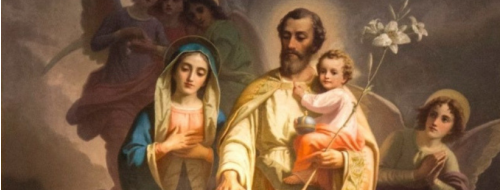 Family Matters
Family Matters
Open Rebuke Is Better Than Secret Love
I will never forget the time I sat in a principle of life seminar. Two thousand men a women gathered to hear the Word of the Lord shared and applied in our daily lives. The speaker stood up in his typical way and began to ask us how many children we had. He said “Raise your hand if you have one child” Then he went up the scale until he found one man who had nine children. Most of those in the room had two, and a few had three. We all clapped and cheered for the man who had nine, and it was a great time.
Then the speaker turned the attention to the rest of us in the meeting. He made the point that most of them had limited their families for the sake of a so call, “better way of life”. It got very quiet. He then proceeded to tell us in his gentle way that we had the spirit of abortion. It got very very quiet. Then he went on to explain that we were a part of the reason that abortion had taken such a toll in our country. You could have heard a pin drop. As the Church goes, so goes the world was one of the principles he brought out.
He said, “You do not value children. You do not want anymore children. You feel you have better things to do with your lives then to raise more children.” Many surgeries had taken place to stop the conception of children. The speaker reproved us for this and challenged us to repent, to have a reversal surgery, and to ask God to open the womb again.
I do not know what all those people did with that session. I'm sure that some of them wrote him off as a fanatic and maybe a legalist. I'm also sure some of them did indeed repent, making changes in their homes. My heart unites with the burden of the Lord that that speaker shared with us that day. There is a small movement of couples whose eyes have opened to see the priceless value of a children. They are repenting, and going back to their doctor for reversal surgery. Oh how the joy bells rings when a child comes forth after the surgery. They call them reversal babies.
How we value our children will affect what we do with them, how we train them, and how much time we spend with them. Somehow, our great God needs to open the eyes of our understanding, so that we may comprehend the value of the treasures He has deposited into our care. A child is an eternal being, made in the image of God, after His likeness, and God wants to dwell in that wonderful child.
A person who went to the same bible college that I went to once said this, “I remember when little David was born. He is eight now, our youngest. Our hearts were full of awe, joy, gratitude, and responsibility as we found ourselves in that holy atmosphere described earlier. I picked up my son and held him before the Lord, dedicated his life to god. As I was praying a prayer of consecration, and asking for wisdom and grace to fulfill my promise, it dawned on me, 'I will be sixty-six years old when I am finished with my commitment to God for this son: twenty more years of training another precious soul for the Lord. You may think that is a long time, but that is all right, for the Lord Jesus is worthy of such sacrifice.' You see, we are raising a soldier for the King. Someday, the King will come to him and take possession of him, and work through him to do damage to Satan's kingdom."
Prayer
Our Father, which art in heaven, hallowed be Thy name. Yes, Lord, may Your name be hallowed by the children which Thou hast given us. Let Thy Kingdom come and Thy will be done in the lives of each of our children. Help us to direct their hearts toward Thee and Thy Kingdom. Forgive us, Lord, for we have failed to see their value. Finally, open the eyes of our hearts to see our children as You see them, as vessels in Your hand. Amen


Books to feed your faith!
Spiritual Maxims
$7.50
"Pere Grou's great theme in the Spiritual Maxims is his insistence on the following of the spirit of Christ as opposed to what he calls the natural spirit, or the spirit of private judgment. Prayer for him is contemplative prayer, or the prayer of the interior way. Not that he despised formal meditation by any means, but he regarded it always as a stepping-stone towards a higher form of prayer, the intimate prayer of the spirit. His great aim and desire was to urge and encourage souls not to be afraid, but to persevere in a wholehearted gift of themselves to God, and in a faithful surrender to the guidance of the Holy Ghost." Translator A Monk Of Parkminster St. Alphonsus writes: “a single bad book will be sufficient to cause the destruction of a monastery.” Pope Pius XII wrote in 1947 at the beatification of Blessed Maria Goretti: “There rises to Our lips the cry of the Saviour: 'Woe to the world because of scandals!' (Matthew 18:7). Woe to those who consciously and deliberately spread corruption-in novels, newspapers, magazines, theaters, films, in a world of immodesty!” We at St. Pius X Press are calling for a crusade of good books. We want to restore 1,000 old Catholic books to the market. We ask for your assistance and prayers. This book is a photographic reprint of the original The original has been inspected and many imperfections in the existing copy have been corrected. At Saint Pius X Press our goal is to remain faithful to the original in both photographic reproductions and in textual reproductions that are reprinted. Photographic reproductions are given a page by page inspection, whereas textual reproductions are proofread to correct any errors in reproduction.
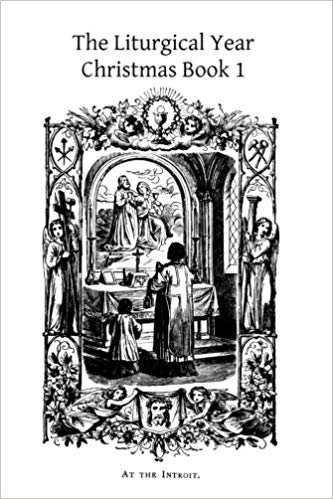
The Liturgical Year: Christmas Book 1 (Volume 1)
$19.95
One of a fifteen volume set, which is being brought back into print for the edification of the Faithful. Anyone who wishes to appreciate the timeless Tridentine Mass and liturgy will find this set a valuable aid in that endeavor. Dom Gueranger has produced a most excellent work, which began the liturgical movement. We pray that this set of books will bring many more to a true appreciation of the Latin Mass and the Divine Office of the Catholic Church. At one time, under the impulse of that Spirit, which animated the admirable Psalmist and the Prophets, she takes the subject of her canticles from the Books of the Old Testament; at another, showing herself to be the daughter and sister of the holy Apostles, she intones the canticles written in the Books of the New Covenant; and finally, remembering that she, too, has had given to her the trumpet and harp, she at times gives way to the Spirit which animates her, and sings her own new canticle. From these three sources comes the divine element which we call the Liturgy. The Prayer of the Church is, therefore, the most pleasing to the ear and heart of God, and therefore the most efficacious of all prayers. Happy, then, is he who prays with the Church, and unites his own petitions with those of this Spouse, who is so dear to her Lord, that he gives her all she asks. It was for this reason that our Blessed Saviour taught us to say our Father, and not my Father; give us, forgive us, deliver us, and not give me, forgive me, deliver me. Hence, we find that, for upwards of a thousand years, the Church, who prays in her temples seven times in the day, and once again during the night, did not pray alone. The people kept her company, and fed themselves with delight on the manna which is hidden under the words and mysteries of the divine Liturgy. Thus initiated into the sacred Cycle of the mysteries of the Christian year, the faithful, attentive to the teachings of the Spirit, came to know the secrets of eternal life ; and, without any further preparation, a Christian was not unfrequently chosen by the Bishops to be a Priest, or even a Bishop, that he might go and pour out on the people the treasures of wisdom and love, which he had drunk in at the very fountain-head. For whilst Prayer said in union with the Church is the light of the understanding, it is the fire of divine love for the heart. The Christian soul neither needs nor wishes to avoid the company of the Church, when she would converse with God, and praise his greatness and his mercy. She knows that the companyof the Spouse of Christ could not be a distraction to her. Is not the soul herself a part of this Church, which is the Spouse? Has not Jesus Christ said: Father, may they be one, as we also are one? and, when many are gathered in his name, does not this same Saviour assure us that he is in the midst of them? The soul, therefore, may converse freely with her God, who tells her that he is so near her; she may sing praise, as David did, in the sight of the Angels, whose eternal prayer blends with the prayer which the Church utters in time.
Jesus and Mary: or Catholic Hymns for Singing and Reading
$14.95
The Author has had a double end in view in the composition of them; first, to furnish some simple and original hymns for singing; secondly, to provide English Catholics with a hymn-book for reading, in the simplest and least involved metres: and both these objects have not unfrequently required considerable sacrifice in a literary point of view. When God raised up our dear and blessed Father St. Philip, St. Ignatius, and St. Theresa, and gave them to His Church, just as the heresy of Protestantism was beginning to devastate the world, those three Saints seem to have had distinct departments assigned to them. All of them, each in a different way, met the subjectivity, the self-introverted habit of mind, which was then coming uppermost, and thus rendered modern Catholicism the great object of our study and the model for our imitation, as being primarily fashioned, and that by the hands of Saints, for the welfare of these latter ages. St. Theresa represents the common sense, the discreet enthusiasm, of devotion and the interior life, which distinguishes Catholic asceticism and the mysticism of the Saints from the fanatical vagaries of the heretics. St. Ignatius, without debarring his children from any field of labour, took in a special way the education of Europe and the evangelization of distant lands for his department, and represented in the Church the principle of faith. St. Philip devised a changeful variety of spiritual exercises and recreations, which gathered round him the art and literature, as well as the piety of Rome, and was eminently qualified to meet the increased appetite for the Word of God, for services in the vernacular, for hymn-singing and prayer-meetings. Sanctity in the world, perfection at home, high attainments in common earthly callings-such was the principal end of his apostolate. He met the gloom and sourness and ungainly stiffness of the puritan element of Protestantism by cheerfulness and playful manners, which he ensured, not in any human way, but by leaving to his children the frequentation of the Sacraments as the chief subject of their preaching and their chief counsel in the spiritual direction of others; and he represented in the Church the principle of love. St. Ignatius was the St. Dominic, St. Philip the St. Francis of his age. What was mediaeval and suited to the mediaeval state of things passed away, and there appeared at the Chiesa Nuova and the Gesu the less poetical, but thoroughly practical element of modern times, the common sense which works and wears so well in this prosaic world of ours. It was natural then that an English son of St. Philip should feel the want of a collection of English Catholic hymns fitted for singing. The few in the Garden of the Soul were all that were at hand, and of course they were not numerous enough to furnish the requisite variety. As to translations, they do not express Saxon thoughts and feelings, and consequently the poor do not seem to take to them. The domestic wants of the Oratory, too, kept alive the feeling that something of the sort was needed; though at the same time the Author's ignorance of music appeared in some measure to disqualify him for the work of supplying the defect. Eleven, however, of the hymns were written, most of them, for particular tunes and on particular occasions, and became very popular with a country congregation. They were afterwards printed for the schools at St. Wilfrid's, and the very numerous applications to the printer for them seemed to show that, in spite of very glaring literary defects, such as careless grammar and slipshod metre, people were anxious to have Catholic. hymns of any sort. The MS. of the present volume was submitted to a musical friend, who replied that certain verses of all or nearly all the hymns would do for singing: and this encouragement has led to the publication of the volume.
Will the Real Catholic Church Stand Up?
Kindle $2.99 / Paperback $9.95
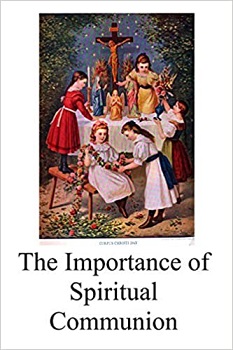
The Importance of Spiritual Communion
Kindle $2.99 / Paperback $5.99
If we cannot receive Holy Communion actually, then let us do so spiritually. These prayers and instructions have been gathered from the Saints and other venerated spiritual writers. Spiritual Communion has been a part of the spiritual life for decades. Growing up I was instructed to make a Spiritual Communion, when I could not go to Communion such as when I assisted at a second Mass. The same is true if one finds oneself at Mass, but not fasting. There are times coming, when it will be difficult, if not impossible to assist at the Holy Sacrifice of the Mass. We should be prepared for such times.
For More Good Traditional Catholic Books:

Grandmother's Old Fashioned Christmas Pudding

Ingredients1 cup dried raisins
1 medium apple, finely chopped
¾ cup brandy, divided
½ cup candied lemon, chopped
⅓ cup walnuts, chopped
⅓ cup hazelnuts
⅓ cup apple cider
¼ cup maraschino cherries, halved
4 ½ teaspoons orange zest
1 egg
1 egg yolk
⅓ cup packed dark brown sugar
¼ cup black currant jelly
⅓ cup grated beef suet or frozen butter
1 cup all-purpose flour
1 cup rolled oats, ground to a powder
½ cup fresh breadcrumbs
¾ teaspoon baking powder
½ teaspoon ground cinnamon
½ teaspoon ground ginger
½ teaspoon ground mace
½ teaspoon kosher salt
½ teaspoon finely chopped rosemary
⅛ teaspoon ground allspice
Directions
1. In a large bowl, combine raisins, apple, 1/2 cup brandy, the candied lemon, walnuts, hazelnuts, cider, cherries, and orange zest; mix well. Cover and let stand 24 hours at room temperature.
2. In a large bowl, whisk together egg and egg yolk. Whisk in brown sugar and black currant jelly. Stir in undrained fruit mixture and the beef suet.
3. In a medium bowl, whisk together flour, ground oats, breadcrumbs, baking powder, cinnamon, ginger, mace, salt, rosemary and allspice. Fold one-third of the flour mixture into the fruit mixture until fully blended. Repeat until all of the flour mixture is added.
4. Heavily butter a 1 1/2-quart enamel basin or heatproof bowl. Pour batter into basin. Cover with a double layer of parchment paper and a sheet of foil; secure by tying with 100 percent cotton kitchen string. Refrigerate overnight.
5. Place basin in a steamer insert set over a pot of simmering water. (The water should be just below the bottom of steamer insert.) Cover and steam 8 hours. Keep an eye on the water level, adding boiling water from a kettle from time to time as needed.
6. Remove pudding from steamer. To serve immediately, let cool 15 minutes; remove as directed in Step 7 and continue to Step 8. Or let the pudding cool completely on a wire rack. Remove foil and parchment paper, replacing them with fresh sheets. If you like, store in refrigerator up to 1 month.
7. To serve, heat the pudding by steaming it as directed in Step 5 for 2 1/4 hours. Remove pudding from steamer and remove foil and parchment paper. Let pudding cool on a wire rack 15 minutes. Slide a thin metal spatula around pudding to loosen it, then turn out onto a warmed plate.
8. Carefully warm 1/4 cup brandy in a metal ladle over medium heat. As soon as the brandy is hot, ask someone to light it. Place ladle, now gently flaming, on top of pudding---but don't pour it over until you reach the table. Pour brandy slowly over pudding, sides and all, and watch it flame to the cheers of the assembled company!
Baker's Clay for making Jesse Tree and Christmas Tree Ornaments

Ingredients
4 cups flour
1 cup salt
1 1/4 - 1 1/2 cup water
food coloring -- optional. Add to water, or keep plain and paint after baking
beaten egg -- optional for use with dough made without food coloring
shellac
wire hooks, bent wire, ribbons, etc., for hanging
Directions
Add food coloring to water if desired. Mix flour, salt and water together and knead until smooth. Roll out and cut with cookie cutters, shape by cutting out freehand, or cut using cardboard templates. "Glue" two pieces together by scratching the surface of one piece, brushing the area to be attached with water, and pressing the second piece onto it. Smooth over cracks with moist dough or water.
Make a hole in each piece through and thread through a hook or bent wire. These can be left in as the pieces are baking.
Bake at 300 degrees until set (1/2 hr to 1 hr). If you want a golden color to the pieces that aren't made from colored dough, brush with beaten egg when they are almost done baking and are dry (a golden color would be good for golden skin tones. For a darker golden color, repeat this process a few times).
If desired, paint totally cooled pieces with acrylic paint.
Seal all types of ornaments in shellac on both sides and let dry thoroughly.
Store ornaments in an airtight tin; keep very dry. They should last for years.
Video sermons and instructions: Timeless timely truths for living the Faith
First Sunday of Advent 2014
The Spiritual Life Simplified
Saint Stephen 2010 Sermon
Sacred Moments - A Servant Who Blesses
Sacred Moments: Having Compassion, Making a Difference

Encouragement for Today
Therefore encourage one another and build one another up.... I Thessalonians 5:11
We believe that through our assorted podcasts, Vlogs, audio downloads and devotional blogs, you will find an assorted Treasure Chest of...
- Sermons
- Classic Catholic Audio Books.
- Devotionals
- Scripture Studies
- Catechism Lessons
- Old-Time Christian radio programs
- Catholic Videos
...that will be a help in your faithful walk with the Lord.
LEARN MORE AT THE ENCOURAGEMENT FOR TODAY WEBSITE: https://www.encouragementfortoday.com
COMETS AND CREATION
“The heavens declare the glory of God; and the firmament sheweth his handywork." - Psalm 19:1

Few sights stick in my memory as much as that of seeing a comet. Beautiful astronomical objects, they glow like a celestial snowball with a large, magnificent tail.
In fact, there are many comets in the sky every night, but usually they are too faint to see with the naked eye, and they may not have the characteristic tail. My most vivid memory of a comet was Comet Hale-Bopp in 1997, and I recall observing the comet after High School hours with a number of enthusiastic students during my time as a public school science teacher.
The tail is caused as the comet approaches the Sun. Material in the tail has evaporated from the comet, so the tail, therefore, points away from the Sun, not away from the direction of travel. This means that every time a comet passes the Sun, it loses some material. The amount and rate of loss show that it is not possible for a comet to survive millions of years.
Wikipedia confidently proclaims that short-period comets are formed in the Kuiper Belt, while long-period comets arise in the Oort Cloud. Yet the Kuiper Belt – a region of asteroids beyond the orbit of Neptune – does not show up any comet formation, while even the very existence of the Oort Cloud is in doubt.
No comet could be older than 100,000 years. Of course, they could be much younger. This is consistent with the biblical timescale of just over 6,000 years.
Prayer: Thank You, Lord, that when we examine science carefully, we find that it is consistent with Your word. Amen.
Catechism Catch-Up
But Deliver Us From Evil
“But deliver us from the evil one.” Matthew 6:13b
Why does God allow bad things to happen? How many of us have heard bad news about a friend and said, “There but for the grace of God go I?” I have said that to myself many times - and so have you. It’s perfectly true that we can all take a lesson from the mistakes of others - and if we don’t, we may find ourselves wishing we had. As John Newton put it in his hymn “Amazing Grace,” there are many “dangers, toils and snares” on the road from earth to heaven. It is only the grace of God that keeps any of us safe along the way.
That brings us to the second half of the Sixth Petition of the Lord’s Prayer: “And lead us not into temptation. But deliver us from evil.” The word “deliver” is very strong. It means to rescue or to snatch. To deliver from what? From “evil”. When this particular Greek verb is used with this particular preposition it almost always means to rescue from a specific person, not from an abstract idea or thing like evil. And as we have already seen, in Matthew 4, Jesus was personally tempted by the devil himself. In this context, then, I think our Lord Jesus is warning his disciples not just of evil in general, but also of the arch-enemy of the believer-of Satan himself, of the devil and his power. Therefore, we can understand this petition this way: “Lead us not into temptation, but deliver us, snatch us, save us, from Satan and his evil schemes against us.”
By this prayer you ought to write down I Peter 5:8, "Be sober and watch: because your adversary the devil, as a roaring lion, goeth about seeking whom he may devour.” Seen in that light, the second half of this petition is easy to understand. “O God, don’t let Satan loose on me. O God, rescue me from Satan and his marauding power and his destructive force in my life.” It’s a very personal prayer. “O God, when Satan comes near me, protect me from his power.” When you put the first half of the petition together with the second half, you get an answer something like this. This petition is really a confession of our spiritual weakness. It’s a prayer of those who feel their vulnerability in the face of Satan and all his attacks. When we pray this prayer, we are saying, “O Heavenly Father, don’t let me come to the place where I will succumb to temptation. Don’t let me come to the place where I will be overwhelmed by Satan, but deliver me from Satan and his power in my life."
When you pray, “Lead us not into temptation,” you are expressing your own weakness in the face of the trials and difficulties of life. You are saying, “Lord, by myself I cannot make it. By myself I can’t do it.” When you pray, “But deliver us from evil,” you declare your confidence in God’s mighty power. The first half is your weakness. The second half is God’s power.
Now to say it like that is to raise one more question. Is this a prayer for cowards? Is this a prayer for people who are too frightened to do spiritual warfare? Let me answer that by asking a question in return. Was Jesus a coward? The answer of course is no. But Matthew 26 says that in the Garden of Gethsemane, on the night before he was crucified, the Son of God knelt and begged God for the cup to pass away from him. The Bible says he prayed with loud cries and tears to God to be delivered from that which was before him. He was the Son of God, yet in the moment of his trial he did not boast of his power. He didn’t say, “O God, I’m ready to go. O God, I’m strong. I’ll crawl up on that cross and die.” On the night before it happened, he cried out to God for help.
The victory of Calvary was won on Thursday night. The battle was won before Judas ever planted his betrayer’s kiss. The battle was won before a spike was ever nailed in the hands of Jesus. The battle was won when he prayed.
Jesus did not fail in his testing because he did not fail in his praying.
That thought deserves our careful attention. Our Lord Jesus did not fail in his testing because he did not fail in his praying. The conclusion is obvious. If our Lord needed to pray this way, how much more do we? If he needed to pray, how much more do we need to cry out in the face of the things that are before us?
Jesus is praying in the Garden of Gethsemane. We pick up the story in Luke 22:39. "And going out, he went, according to his custom, to the mount of Olives. And his disciples also followed him. And when he was come to the place, he said to them: Pray, lest ye enter into temptation.’” Then he went off and prayed earnestly to God and came back and found them asleep. Verse 46 says, "And he said to them: Why sleep you? arise, pray, lest you enter into temptation." These verses explain Matthew 6:13. In the moment of crisis Jesus passed the test because he did not fail to pray. Jesus’ word to his disciples and his word to us is simple: Before you face what the world has to offer and before you go to do battle with Satan, make sure that you have prayed. Pray that you may not fall into temptation. In the words of one writer, “The battle is half-won if you want to avoid temptation enough to beg God to help you.” When you pray, you are admitting your weakness. When you don’t pray, it’s usually because you don’t take temptation seriously.
This petition is a warning against being cock-sure. It’s a warning against taking our own strength for granted. When the soldier goes out to do battle, is it not better if he is a little bit afraid? Is it not true that a little fear can keep a soldier alive on the battlefield? The presumptuous soldier who rushes off to battle is the one most likely to be killed in combat. Suppose we flip this petition over and view it from the other side. Suppose someone were to pray, “Go ahead, Lord. Let me have it. I can handle temptation. I’m strong. I’m ready. I can take whatever Satan throws at me.” Such a person is headed for a rude awakening. They are defeated before they step on the battlefield because they have taken their adversary too lightly.
A little fear is a very healthy thing. Jesus is saying, “You’re too weak to face the devil on your own so don’t even try. You’re weak but God is strong. You in your own strength are no match for Satan.” Yet when you are in the motel room and you are by yourself, if you are trusting in your own strength, you’ll go over and push that button and then you’ll curse yourself afterwards for having done it. You’ll be defeated every time. A little fear is a healthy motivation when you’re fighting against a super-human adversary.
This petition, which on the surface seems so simple, is actually very profound. It’s a prescription for the spiritual life. It’s a measure of your spiritual health. Do you pray this prayer? Jesus said, “Thus therefore shall you pray... lead us not into temptation."-a confession of your own weakness- "But deliver us from evil." -a confession of your profound confidence in God and his power. When you pray this way you will find that no matter what happens to you, you will be delivered. You will not be defeated. You will not fall.
God will take you into the temptation. God will take you through it. And no matter how difficult, God will bring you out of it.
When all is said and done, this petition forcibly reminds us of how weak we really are. Without the Lord’s help, we’re in big trouble every moment of every day. We are sitting ducks for the flaming darts of the devil. Unless the Lord helps us, we will not only face temptation, we will succumb to it every single time. The words of Jesus to Peter seem to go hand in hand with this petition. At the Last Supper, Jesus predicted that Peter would deny him, and he also predicted that Peter would not be utterly destroyed. He would be tempted, would fall, and would eventually be restored by the Lord. “And the Lord said: Simon, Simon, behold Satan hath desired to have you, that he may sift you as wheat: But I have prayed for thee, that thy faith fail not: and thou, being once converted, confirm thy brethren.” (Luke 22:31). Three times Jesus calls his name as if to reassure him that even in the midst of his greatest humiliation, the Lord would be with him every step of the way. The words of Christ tie both meanings of “temptation” together. Satan wants something from us in the moment of temptation, and so does God! The one would destroy us and the other wants to deliver us. In this case Satan’s temporary victory in Peter’s life leads to a much greater victory for God in the end. So it is for us as well. Our defeats, bitter as they are, can lead on to great spiritual victories.
“Simon, Simon, behold Satan hath desired to have you, that he may sift you as wheat" The word translated “desired” in the Greek means “to ask from, demand of.” The English word, at the time of the translation means “Wished for; coveted; requested; entreated.” Satan set his eyes on Peter and determined to bring him down by any means possible. I find it comforting that Satan must ask God’s permission before touching any of his children. Sometimes Christians become frozen in fear because they have given Satan too much credit. Sometimes we talk as if Satan were a kind of “Junior God,” almost God but not quite, as if he has, say, 90% of God’s power, 90% of his wisdom, and so on. But that is quite different from the biblical picture. Satan is always revealed as a creature of great power and cunning who is nevertheless first and always a created being. He has no power independent of God. He can only do what God permits him to do. The Devil has been described as “God’s devil.” or “God’s lapdog.” Surely this is more biblical than viewing him as some evil force equal with God. If he is God’s equal, he wouldn’t have to ask permission before attacking Peter.
I should note also that the “you” in this verse is plural. Satan wanted to destroy all the apostles but he specifically targeted Peter. This makes sense when you think about it.
Satan goes after spiritual leaders. He starts at the top because if he can knock off the leader, others will no doubt fall in short order.
That’s why the devil goes after Popes, Cardinals, Bishops, Priest, Leaders, and Parents. His desire is to “sift” God’s people by putting them under such pressure that they will give way and their faith be proved fake. If that is the case, why would God permit his children to be put in such a bad position? Precisely so that he can prove that even under severe pressure, we can survive if we depend upon his grace. In Peter’s case that meant actually falling into sin and being restored later.
Satan often attacks us at the point of our perceived strength, not at the point of our weakness.
After all, had not Peter boldly said, “Although all shall be scandalized in thee, yet not I” (Mark 14:29)? If you had asked Peter six hours earlier to name his strong points, no doubt he would have listed boldness and courage right at the top. He would have said, “Sometimes I put my foot in my mouth, but at least I’m not afraid to speak up. Jesus knows that I’ll always be there when he needs me.” But when Satan attacked, it came so suddenly, so swiftly, so unexpectedly that the “bold apostle turned to butter.” By himself Peter is helpless. In the moment of crisis, Peter failed at the very point where he pledged to be eternally faithful.
Should this surprise us? After all, why should Satan attack only at the point of your self-perceived weakness? If you know you have a weakness, that’s the very area you will guard most carefully. If you know you have a problem with anger or with laziness or with lust or with gluttony, will you not be on your guard lest you fall? But it is not so with your strengths. You tend to take those areas for granted. You say, “That’s not a problem for me. I have other problems, but that area is not really a temptation at all.”
Watch out! Put up the red flag! There is danger ahead. When a person takes any area of life for granted, that’s the one area Satan is most likely to attack. Why? Because that’s the one area where you aren’t watching for his attack.
It happened to Peter. It will happen to you and to me sooner or later.
“But I have prayed for thee, that thy faith fail not" (Luke 22:32) These simple words contain amazing sources of truth. First, they tell us that Christ knew in advance everything that Peter was about to do. He knew about the denials, the cursing, the repeated lies Peter was about to tell, and he knew about the bitter tears he would shed when he saw Christ taken away in judgment. Even more than that, he knew that one day Peter would become a mighty preacher of the gospel. He saw it all-the pride, the reckless boasting, the shameful denials, the broken heart, and the deep repentance, and the new resolve to serve the Lord. He saw it all before any of it had happened. He saw it before Peter knew anything about it.
Second, Christ’s response to Peter’s fall is to pray for him. Hebrews 7:25 tells us that Christ is “always living to make intercession for us.” And it is because of his intercession “He is able also to save for ever them that come to God by him” In a deep sense our salvation depends on the moment-by-moment intercession of Jesus for his people. What an awesome thought-that the Son of God intercedes for us. Without His intercession we would never make it.
Third, Christ does not pray for Peter to be removed from temptation. Instead, he prays that in the midst of his denial “that his faith fail not.” What a revelation this is of God’s purposes for you and me. This explains so much about why we go through hard times. Many times God intends that we should face the truth of our own personal failures so that our trust might be in the Lord alone.
Don’t miss two encouraging facts about the way Jesus treated Peter:
-
He never criticized him.
-
He never gave up on him.
Jesus knew about Peter’s denial long before it happened. He knew what Peter would do, he knew how he would react, and he knew the kind of man Peter would be afterward. That’s why he said, “and thou, being once converted” Not if ... but when! He knew that Peter’s heart was good, he knew after his terrible sin he would return to the Lord. Isn’t that wonderful? Jesus knew that Peter had important work to do-"confirm thy brethren"-but it couldn’t happen without his fall and his restoration to the Lord. It had to happen that way or else Peter would never be fully effective for Christ.
There is an important principle at work here. A bone that is broken often becomes stronger after it is healed. Something in the healing process actually makes the break point stronger than it was before. The same is true of a rope that breaks. In the hands of a master splicer, the rope once repaired becomes stronger than it was before. The same thing is true of our failures.
God can touch our broken places and make us stronger than we were before.
Though we fall and fall and fall, and though our faces are covered with the muck and grime of bitter defeat, by God’s grace we can rise from the field of defeat to march on to new victory. That’s what happened to Peter. His guilt was turned into grace; his shame into sympathy; his failure into faithfulness.
Never again would Peter brag on himself like he did that night. Never again would he presume to be better than his brothers. Never again would he be so cocky and self-confident. All that was gone forever, part of the price Peter paid for his failure in the moment of crisis. It is a good thing that the Lord allows this to happen to us. By falling flat on our faces we are forced to admit that without the Lord we can do nothing but fail. The quicker we learn that (and we never learn it completely), the better off we will be. Failure never seems to be a good thing when it happens, but if failure strips away our cocky self-confidence, then failure is ultimately a gift from God.
As we grow in Christ, most of us come to the place where we think there are some sins we just won’t commit. Maybe we don’t say it out loud, but in our hearts we think, ‘I would never do that.’ but God will sometimes let you fail in the moment of crisis and in so doing, he shows you a part of yourself you had never seen before.
That’s what he did for Peter. Never again would Peter stand up and boast about his courage. In the future he would talk about humility instead.
I have already noted that Jesus knew about Peter’s fall, and even predicted it, but he never tried to prevent it. This raises an interesting question. If God knows about our failures even before we fail, why doesn’t he stop us? Why does he let us go headlong over the cliff? Here are three possible answers.
a) To show us the depth of our sin. As long as we stand on top of the cliff, we can brag about our goodness, but when we are lying at the bottom, bruised and broken, we are forced to admit the truth about ourselves.
b) To purge us from pride. I don’t think Peter ever forgot that sad night when he denied the Lord. Never again would he boastfully claim to be more courageous than the other apostles. So it is with all of us. Our failures are like Jacob’s limp. They serve as a perpetual reminder and a guard against overwhelming pride.
c) To prepare us for greater work we must do. In some way we can’t fully understand, Peter had to fall so that God could raise him back up again. The falling part was Peter’s own doing, the raising up came by the gracious hand of the Lord. But there is no getting up without falling down first. Even so our failures qualify us to minister to others we could never otherwise reach. I have seen those once trapped by drug and alcohol addiction, sexual sin, and those who have served time in prison, who have experienced God’s grace greatly used to help others going through that same heartbreak. God uses our worst moments as preparation for work he has appointed for us.
God often uses broken people to accomplish great things.
If you doubt this, let’s do a roll call of broken saints:
Noah who got drunk
Abraham who lied about his wife
Jacob who was a deceiver
Moses who murdered an Egyptian
Rahab who was a harlot
David who was an adulterer
Paul who persecuted the Church
Peter who denied Christ
Here is an amazing thought to ponder: Peter did much more for Jesus Christ after his fall than he did before. Before his fall, he was loud, boisterous and unreliable; afterward he became a flaming preacher of the gospel. Before, he was a big talker; afterward, he talked only of what Jesus Christ could do for others. He was the same man, but he was different. He was still Peter through and through, but he had been sifted by Satan, and in the sifting the chaff of his life had been blown away. And he became a vessel ready to except the power of the Holy Spirit in his life starting on the day of Pentecost.
This is what Peter lost in his failure:
His vanity
His pride
His self-confidence
His rash impulsiveness
His unreliability
This is what Peter gained after his restoration:
Humility
New confidence in God
Tested courage
A new determination to serve Jesus Christ
A willingness to use his experience to help others
The things he lost he didn’t really need; the things he gained couldn’t have come any other way. In the same way God redeems our mistakes by removing the things that brought us down and replacing them with the qualities we always wanted but couldn’t seem to find.
There is much in this story to encourage us. It was not the real Peter who denied the Lord; it was the real Peter who followed him into the courtyard. It was not the real Peter who cursed and swore; it was the real Peter who said, “You are the Christ, the Son of the living God." When the Lord looks at you and me, he sees beyond our faults to the loyalty underneath. He sees our pain, our tears, and our earnest desire to please him. He sees us in our faltering attempts to follow him.
Let’s face it. We’re all broken people. Some of us just hide our brokenness better than others. There’s a little bit of Peter in all of us, and that’s why this story speaks on such a deep level
What should we learn from these words of Christ?
a) The value of humility. If Christ’s handpicked Number One man could deny him, then none of us can claim to be beyond temptation. Peter wasn’t a bad man, but he was weak and he didn’t realize how weak he was until it was too late. Humility is always in order. You’re not as hot as you think you are ... and neither am I.
b) The need for patience with each other. Sometimes we act surprised when our Christian friends disappoint us. Perhaps we should be surprised when they don’t. Certainly we’d all be happier if we lowered our expectations to a level consistent with reality. Even on our best days, we will still sin and disappoint ourselves and others. It behooves us all to cut each other a little bit of slack.
c) The magnificence of God’s grace. None of us really understands God’s grace. This is the hardest of all Christian doctrines to grasp because it goes against our deeply-felt need to prove ourselves worthy. Grace says, “You aren’t worthy but I love you anyway and desire to give you what you need to be victorious.” That’s hard to hear and hard to believe.
One friend said she found hope because like Peter she had made her share of mistakes. I replied that people with a past would find comfort in his story. As true as that is, it’s also true that we all have “a past” and therefore we stand in Peter’s shoes-greatly loved, capable of foolish choices, and yet redeemed and redeemable for service in the future. This is only possible by the grace of God. This means that the God who has forgiven our past sins through the sacrament of baptism and has forgiven us of our present sins through the sacrament of Confession, intends also to forgive our future confessed sins as well. What an awesome thought that is. You who read these words, take heart. You may be heading for a fall and you don’t know it yet. Take heart, the God who loves you enough to let you fall will himself pick you back up again.
READ MORE FROM THE TRADITIONAL CATECHISM AT THE WEBSITE: https://www.traditionalcatechism.com
Living Catholic:
Symptoms Of Slothfulness (Laziness)

God knows our hearts, and He warns us to guard them with diligence: “With all watchfulness keep thy heart, because life issueth out from it.” (Proverbs 4:23). We should be alert to signs of slothfulness and reject the temptation to put forth anything less than our best efforts. “Whatsoever you do, do it from the heart, as to the Lord, and not to men: Knowing that you shall receive of the Lord the reward of inheritance. Serve ye the Lord Christ.” (Colossians 3:23–24).
Typically, the following characteristics are trademarks of a slothful person:
Slothfulness develops gradually as a person makes “little” decisions with the goal of maintaining comfort and taking the easy path. A sluggard’s choices may include decisions to stay in bed a little longer, extend lunch and coffee breaks at work, or spend time in idle chatter. A slothful person may procrastinate or refuse to work in adverse conditions.
These actions may seem harmless initially, but soon they can set the standard for a way of life. Minutes frittered away add up to significant losses.
-
“Thou wilt sleep a little, thou wilt slumber a little, thou wilt fold thy hands a little to sleep: And want shall come upon thee, as a traveller, and poverty as a man armed. But if thou be diligent, thy harvest shall come as a fountain, and want shall flee far from thee.” (Proverbs 6:10–11).
-
“Slothfulness casteth into a deep sleep, and an idle soul shall suffer hunger.” (Proverbs 19:15).
-
“As the door turneth upon its hinges, so doth the slothful upon his bed.” (Proverbs 26:14).
Disregarding Time and Seasons
The sluggard is not a self-starter. To him, one day is as good as another. He assumes that what he does not do today can just as easily be done tomorrow. The sluggard does not understand the value of time or the meaning of seasons. His basic philosophy is to live for the moment and let the future take its own course.
The slothful person does not consider that he must one day give account to God for the way he has used his time. He sees nightfall as a justifiable reason for sleep, not for examining whether or not he has earned it. He considers winter an intrusion on his life, not a time for which to prepare and a time when he can enjoy the fruit of his labors. Therefore, the sluggard has little and becomes dependent on the diligent, by whose industry he will be kept alive.
-
“The hand of the valiant shall bear rule: but that which is slothful, shall be under tribute.” (Proverbs 12:24).
-
“Because of the cold the sluggard would not plough: he shall beg therefore in the summer, and it shall not be given him.” (Proverbs 20:4).
Leaving Tasks Unfinished
A slothful person is lethargic in everything he does. Each job becomes a mountain in his path instead of a door of opportunity. If he is visited by success, he does not recognize or value it. To the sluggard, success simply means more work. Thus, he allows opportunities to slip by and permits half-completed jobs to spoil. Even the maintenance of what he possesses or governs becomes a burden to him.
-
“I passed by the field of the slothful man, and by the vineyard of the foolish man: And behold it was all filled with nettles, and thorns had covered the face thereof, and the stone wall was broken down.” (Proverbs 24:30–31).
-
“The deceitful man shall not find gain: but the substance of a just man shall be precious gold.” (Proverbs 12:27).
-
“By slothfulness a building shall be brought down, and through the weakness of hands, the house shall drop through.” (Ecclesiastes 10:18).
Living in a World of Wishful Thinking
When the sluggard is not sleeping, he thinks about the things he wants to do and the things he wants to get. However, he never takes action to make his hopes a reality. The tension between his restless mind and his inactive body produces destructive frustrations.
-
“Desires kill the slothful: for his hands have refused to work at all. He longeth and desireth all the day: but he that is just, will give, and will not cease.” (Proverbs 21:25–26).
-
“The slothful hideth his hand under his armpit, and will not so much as bring it to his mouth.” (Proverbs 19:24).
Being Unproductive in the Workplace
A slothful employee is a destructive influence in a company. His lack of initiative and follow-through actually costs the company rather than benefiting it. In fact, fellow employees regard his absence as a relief, because they can get on with the tasks at hand without having to get him out of the way or do his work for him.
At first, employers may try to overcome the harmful effects of slothfulness by transferring the sluggard to a less strategic position of responsibility. Unfortunately, this choice often motivates the employee to merely give excuses for why things did not work out as they should have, thus fueling his discontentment and disloyalty.
-
“He that is loose and slack in his work, is the brother of him that wasteth his own works.” (Proverbs 18:9).
-
“As vinegar to the teeth, and smoke to the eyes, so is the sluggard to them that sent him.” (Proverbs 10:26).
Limiting Activities by Self-Induced Fears
Sometimes slothfulness is the result of irrational fears, and if left unchecked, it will generate more irrational fears. As an escape from his fears, a slothful person sleeps.
-
“The slothful man saith: There is a lion in the way, and a lioness in the roads. As the door turneth upon its hinges, so doth the slothful upon his bed.” (Proverbs 26:13–14).
-
“And being afraid I went and hid thy talent in the earth: behold here thou hast that which is thine. And his lord answering, said to him: Wicked and slothful servant.....” (Matthew 25:25–26).
-
“The slothful man saith: There is a lion without, I shall be slain in the midst of the streets.” (Proverbs 22:13).
Denying Slothfulness
Slothful behavior is often completely rationalized in the mind of the sluggard. He declares he would work if only there were fewer obstacles in his path. Because he has convinced himself that he is merely waiting for more favorable working conditions, he stubbornly denies accusations of laziness. “The sluggard is wiser in his own conceit, than seven men that speak sentences.” (Proverbs 26:16).
Throughout Scripture, we are challenged to work diligently and to do all things in a manner that brings glory to God. Turn away from the tendencies of slothfulness! “Be . . . not slothful. In spirit fervent. Serving the Lord.” (Romans 12:10–11).
To Learn More Principles For Life Go To: Resources: Principles of Life


Pray for the Holy Father! Pray with the Holy Father!
- Your prayers are asked this month and every month for the intentions of the Holy Father, Pope Michael.
- Pray for the Holy Father as he celecrates the tenth anniversary of His Holiness' Coronation on Friday, December 10, 2021.
- Please pray for the success and growth of the new Chrysostom Bible Institute. Check out the wonderful work it is doing and see how you can get involved!
- Your prayers and support are asked in a special way for the soon to be established House of Prayer.
- Pray especially that the Holy Ghost inspires and helps us prepare spiritual manuals and days of recollection to make available to all.
- Keep in your prayers our Podcast Ministry, a new way to reach out in the missionary work of the Church! We ask for prayers for our other activities world wide. We have made good contacts in the Philippines and Japan and ask prayers that these contacts will bear much fruit for the salvation of souls.
- Be sure to keep St. Helen Catholic Mission in your prayers. Why not go on over to the site now and see what they have to offer and how you might be able to help!
- Also we ask you to keep in prayer our increasing missionary work in the United States and elsewhere.
- Pray for those outside the Church and those who do not know God, that they may see the light of grace and be led safely home to the refuge of the Holy Catholic Church.
- As always, we also ask that you pray for yourself! Never forget your own state of soul. God is calling you to His service in His love. We know that our Lord can count on you to answer.
- We are all praying especially for you, too. May you correspond with every grace of God!
- In what other needs or intentions may we pray for you? Let us know!
- Let us remember that the Church runs on prayer. Without your prayers, God will not work in hearts and souls to bring them to a knowledge of the truth. (I Timothy 2:4)


To Donate online go to:

To Donate by Mail:
Our address is
Vatican in Exile
829 NE Chester
Topeka, Kansas 66616
Make Checks payable to:
Vatican in Exile




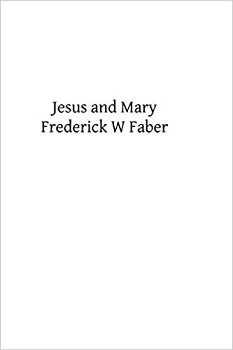
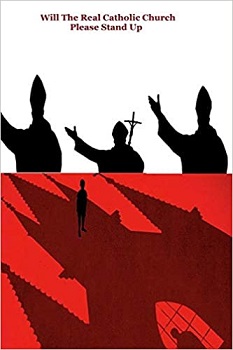









 Follow
Follow


